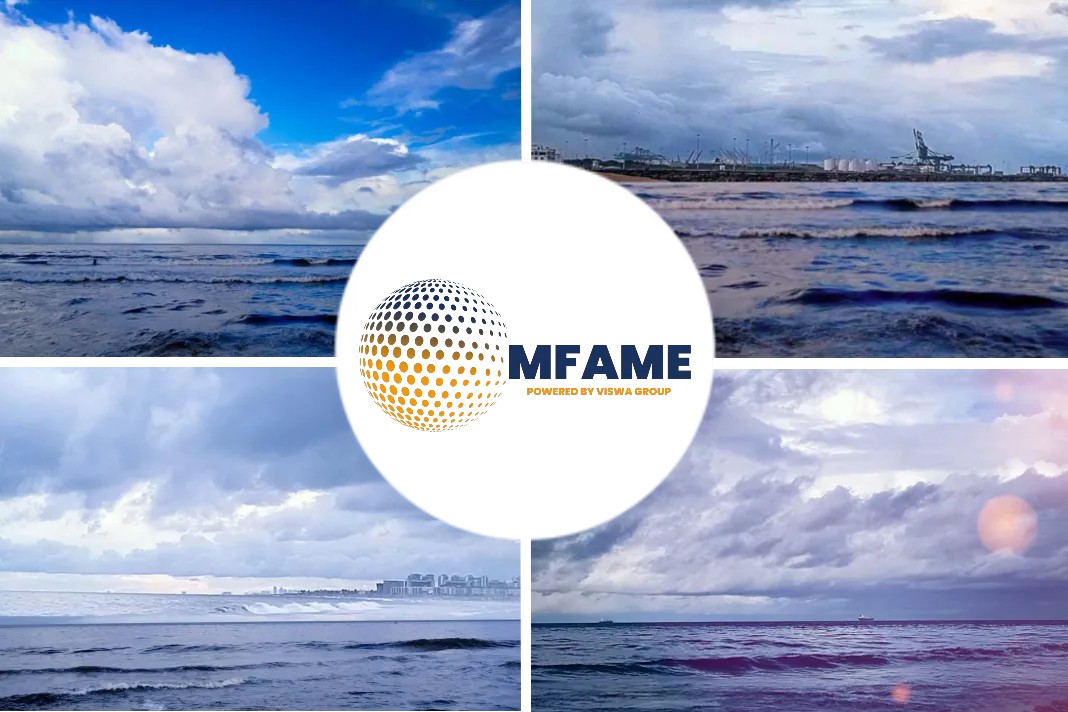Two shipping companies explained the use and benefits of azimuth propulsion on vessels at Riviera Maritime Media’s Podded propulsion: operational, maintenance and in-service considerations webinar, reports Riviera.
About the event
This event, sponsored by ABB, was held 12 April 2022 during Riviera’s Marine Propulsion Webinar Week.
Oldendorff Carriers director of innovation Torsten Barenthin explained why podded propulsion was installed on two vessels used to tranship coal from Capesize bulk carriers in northern Vietnam.
Traditionally, these propulsion units were installed on super-yachts, high-speed ferries, oil tankers, offshore vessels and drilling rigs. But their application has been extended to dry cargo ships and cruise liners.
Greater manoeuvrability
Oldendorff has ABB’s Azipods on two 21,500-dwt transhipment bulkers. “There are plans to tranship coal for 25 years, so we needed reliable systems,” said Mr Barenthin. “Now, we have the future of transhipment here.”
He said podded propulsion provides greater manoeuvrability as ships unload coal from alongside Capesize and Newcastlemax bulk carriers and then enter Vietnamese ports with draught limitations.
ABB’s propulsion system
ABB was the turnkey supplier for all of the main propulsion and electrical systems on these ships and for the shore power in Vietnam. It also provides long-term services and remote diagnostics. Oldendorff uses these remote services for alert management and problem solving.
“We are able to overcome any problems in time with support from ABB’s Shanghai office and with remote support,” said Mr Barenthin. “We have learned to value this type of technology. We can solve problems on site with remote support and diagnostics.”
High electrical payloads and generation equipment
Carnival Corp project manager for electrical and automation systems Andrea Rudan was also complementary about the remote support and diagnostics.
Cruise ships have high electrical payloads and generation equipment, so have the power to run Azipods. “Their efficiency and reliability are critical,” said Mr Rudan. “Remote monitoring is mandatory for us. Azipods are extremely important performing systems. It is important to monitor and maintain them properly.”
Carnival has used Azipods on cruise ships for more than 20 years. During that time, it has seen benefits in manoeuvrability, docking in multiple ports and improved passenger comfort.
“Podded propulsion plays its role in efficiency, especially when fuel costs are rising,” said Mr Rudan.
Reliability and performance
Reliability is important as maintenance usually requires drydocking, and there are not many available drydocks with capacity to accommodate Carnival’s largest cruise ships.
Mr Rudan said engineers need to be trained and Azipod spares stored for maintenance.
ABB Marine & Ports sales manager for the dry cargo segment Matti Nuuttila said Azipods were “agile propulsion systems” for Oldendorff and Carnival’s applications.
He said the ABB Ability Marine remote diagnostics system provides information for ABB to monitor if systems are run properly. If an engineer is needed, they can be prepared to solve the problem swiftly.
“We will know what the problem area is and can send the right person, with the right knowledge and the right spares to fix this,” said Mr Nuuttila. “We increase uptime with remote support.”
Performance data is sent from the ship to a cloud-based resource, where it is forwarded to an ABB Ability collaborative operations centre and to the client.
“The shipping company can follow how things are going, how the system is running and equipment condition on board,” he said.
Did you subscribe to our daily Newsletter?
It’s Free! Click here to Subscribe
Source: Riviera
















